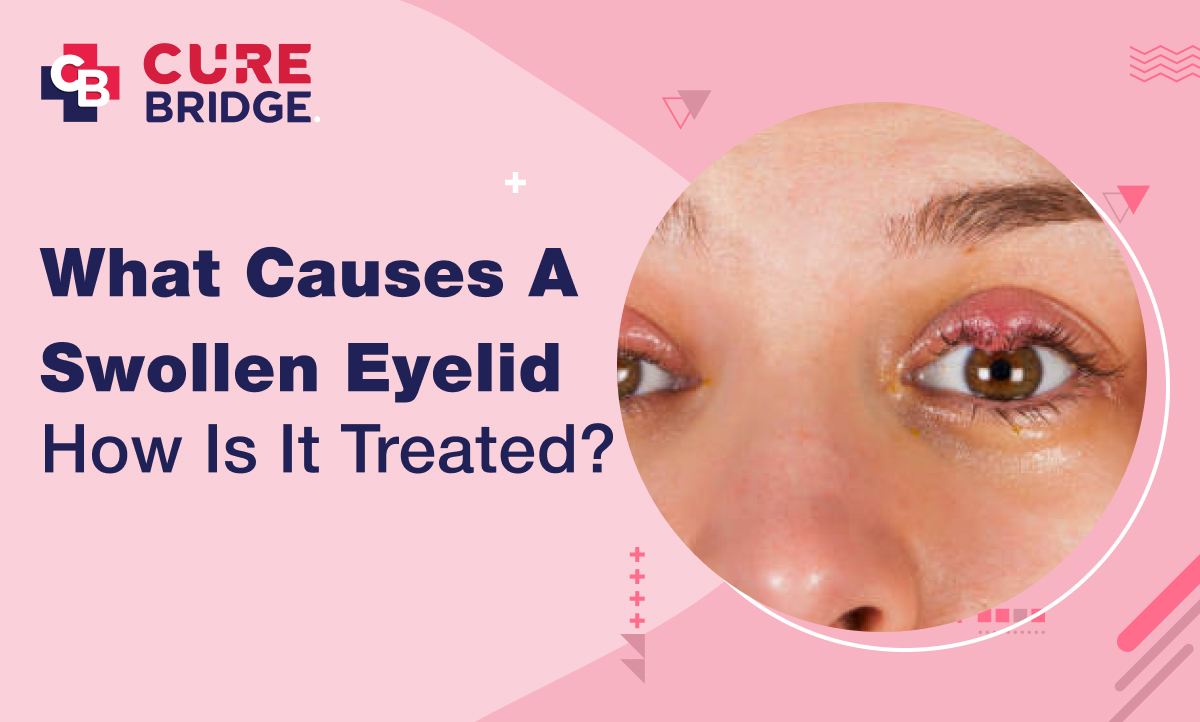
What Causes a Swollen Eyelid, and How Is It Treated?
Waking up with a swollen eyelid can be unsettling. It’s a common issue that many people face, but what exactly causes it? A swollen eyelid occurs when inflammation or excess fluid (edema) in the tissues surrounding the eye leads to an enlarged eyelid. This condition can affect one or both eyes and may accompany other symptoms such as redness, itchiness, pain, and sometimes, a decreased ability to open or close the eye entirely. This can happen overnight or develop gradually over a period.
Difference between Puffy and Swollen Eyes
Puffy and swollen eyes are terms often used interchangeably but refer to slightly different conditions. Puffy eyes typically result from temporary factors such as lack of sleep, crying, or dietary choices leading to water retention; they manifest as mild swelling under the eyes and are usually not accompanied by pain. Swollen eyes, conversely, imply a more pronounced inflammation or edema of the eyelid or surrounding areas, potentially affecting vision and may be accompanied by symptoms like redness, itching, or pain. This condition can be triggered by infections, allergies, or other medical issues, indicating a need for closer attention or medical treatment.
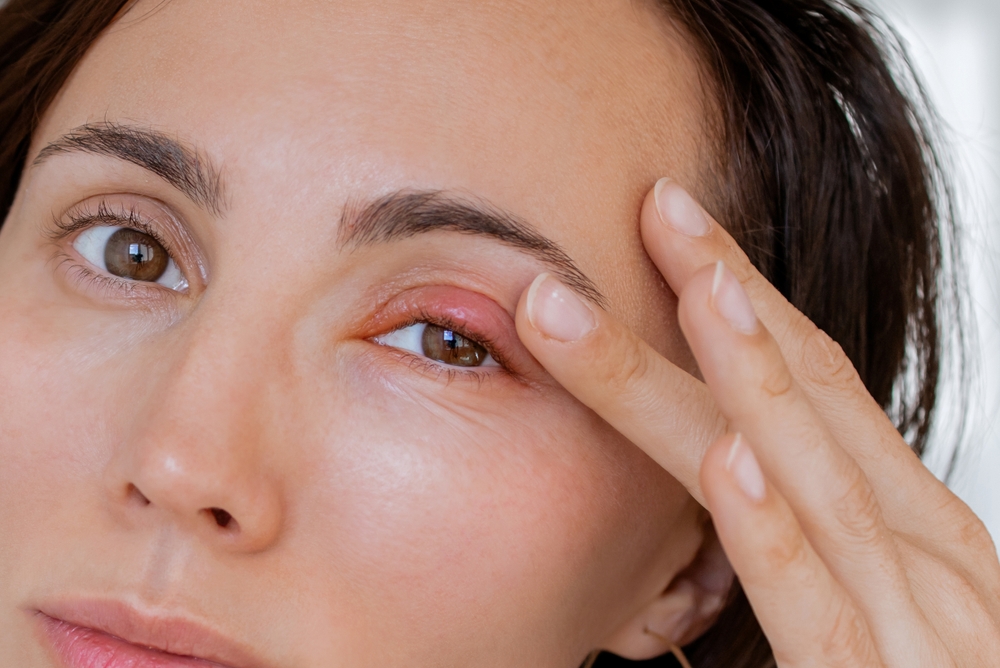
What Causes a Swollen Eyelid?
A swollen eyelid can affect either the upper or lower eyelid and may involve one or both eyes. The swelling can be caused by various factors, each leading to discomfort and sometimes affecting vision.
- Infections are a primary cause, with conjunctivitis (pink eye) being a typical example that can lead to swollen eyelids.
- Styes, bacterial infections of the oil glands in the eyelids, and chalazion, resulting from blocked oil glands, can also cause swelling.
- Allergies are another significant cause; exposure to allergens like pollen, dust, or pet dander can trigger allergic reactions, leading to swollen, itchy eyelids.
- Additionally, injuries or trauma to the eye area, such as a scratch or a blow, can result in swelling as part of the body’s inflammatory response.
Other causes include underlying medical conditions like thyroid eye disease or ocular herpes. In some cases, swelling can result from excessive crying, lack of sleep, or dehydration, leading to fluid retention in the eyelid tissues. Identifying the underlying cause is crucial for effective treatment and relief.
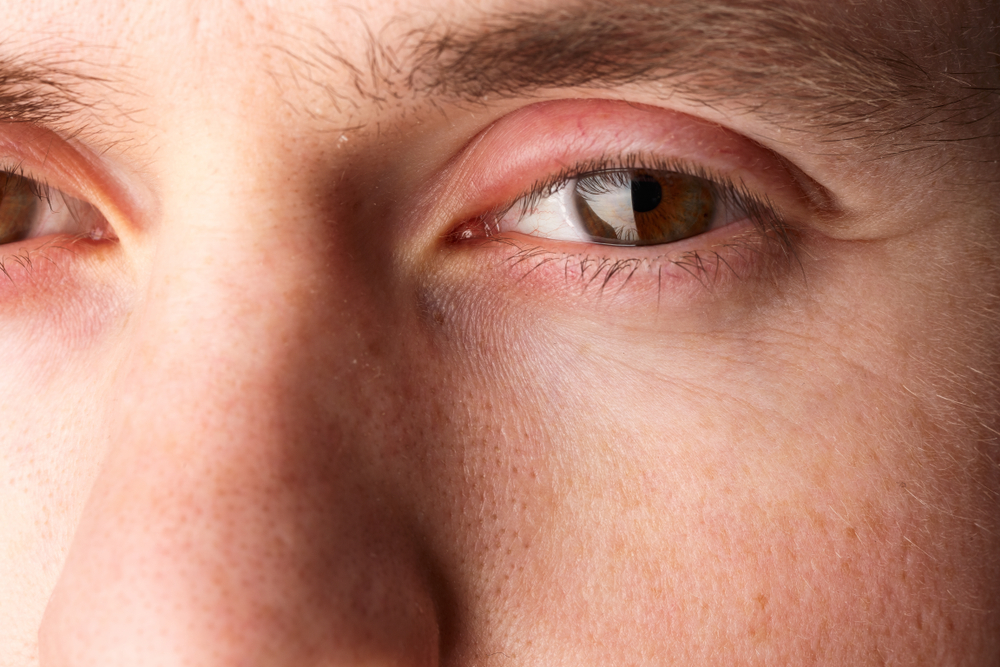
Treatment for Swollen Eyelid
Treating a swollen eyelid involves addressing the underlying cause of the inflammation and providing relief from symptoms. For mild cases, simple home remedies can be effective. Applying a cold compress to the affected eye several times daily can reduce swelling and discomfort. It’s important to ensure cleanliness in the area, gently washing the eyelid with mild soap and water to remove any irritants or allergens. Over-the-counter antihistamines can be beneficial if allergies are the cause, helping to reduce itching and swelling.
Medical treatment may be necessary in cases of infection, such as styes or conjunctivitis. Antibiotic eye drops, or ointments are commonly prescribed for bacterial infections to eliminate the infection and reduce swelling. For a chalazion caused by a blocked oil gland, warm compresses can help the gland to unclog and drain, easing the swelling.
Suppose the swollen eyelid is due to a more severe condition, such as thyroid eye disease or an autoimmune disorder, a healthcare professional may recommend specific treatments tailored to these conditions. In all cases, avoiding touching or rubbing the eyes is crucial to prevent further irritation or spreading of any infection. Should the swelling persist or be accompanied by severe pain, vision changes, or signs of infection, seeking medical attention is essential to rule out more serious issues and receive appropriate treatment.
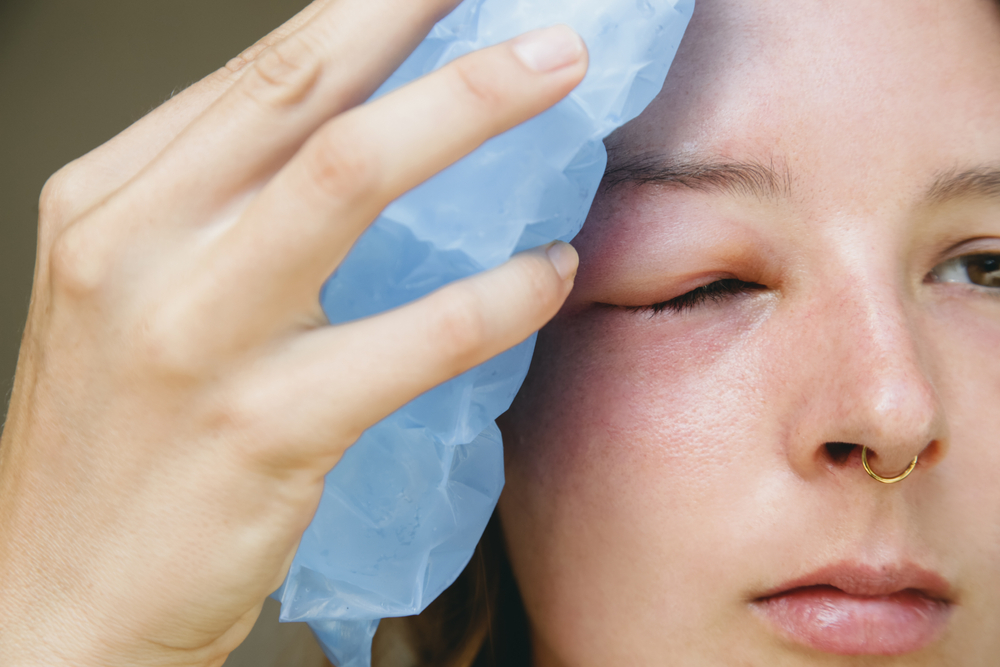
Symptoms of Swollen Eyelid
Symptoms of swollen eyes can vary depending on the underlying cause but generally include noticeable puffiness or enlargement of the eyelid area. This swelling can be accompanied by other symptoms that may affect one or both eyes. Common signs include redness of the eyelid and the surrounding skin, indicating inflammation or irritation. Individuals may also experience itchiness, leading to an uncomfortable urge to rub the eyes, which can further aggravate the condition.
In addition to physical discomfort, there might be a sensation of heaviness on the eyelids, making it difficult to open the eyes fully, primarily upon waking. The eyes may produce excessive tears, resulting in a watery appearance, or, conversely, feel unusually dry and gritty, as if there is a foreign body in the eye. Discharge is another symptom, which can be transparent or pus-like, sometimes causing the eyelashes to stick together.
Visual disturbances, such as blurred vision or sensitivity to light, can occur if the swelling interferes with the normal functioning of the eye. In some cases, pain is present, ranging from a mild, dull ache to severe discomfort. Any of these symptoms can signal a need for medical attention to effectively identify and treat the cause of the swollen eyes.
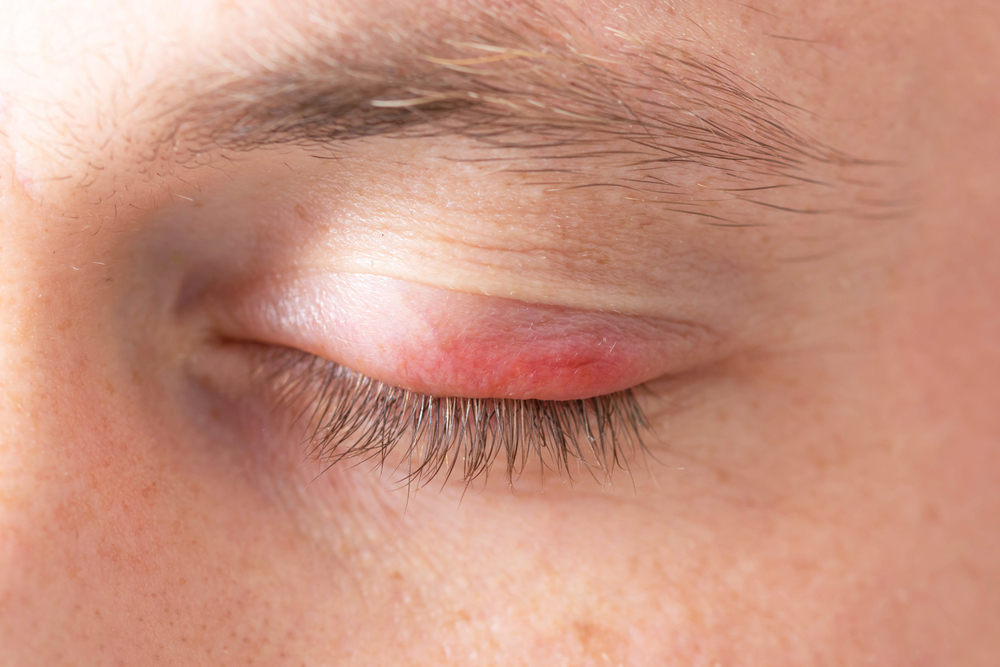
When to see a doctor for a swollen Eyelid?
It’s essential to seek medical advice for a swollen eyelid when home remedies do not reduce swelling, if the condition worsens, or if it persists for more than a few days. Immediate medical attention is warranted if the swelling is accompanied by severe pain, redness spreading to other parts of the face, fever, difficulty in seeing, or if the eye cannot open fully. These symptoms could indicate a more severe infection or an underlying medical condition requiring professional treatment. Additionally, if you experience recurrent episodes of swollen eyelids without an apparent cause, consulting a healthcare provider can help diagnose any underlying issues and prevent further complications.
Tips to Prevent Swollen Eyes
Preventing swollen eyes involves a combination of good hygiene practices, lifestyle adjustments, and being mindful of potential irritants. Start by maintaining proper eye hygiene; regularly clean your eyelids with a gentle cleanser to remove debris and prevent bacterial growth. Avoid rubbing your eyes, as this can introduce bacteria and lead to inflammation. For those prone to allergies, identify and minimize exposure to allergens like pollen, dust, and pet dander. Using air purifiers in living spaces and hypoallergenic pillowcases can also help reduce allergic reactions.
Ensure you stay hydrated and get sufficient sleep, as dehydration and fatigue can contribute to swelling. Incorporate a balanced diet rich in vitamins and minerals to support overall eye health. If you wear makeup, opt for hypoallergenic products and permanently remove makeup before sleeping to prevent irritation and blockages in the oil glands of your eyelids.
Wear sunglasses outdoors to protect your eyes from harsh environmental factors such as wind, smoke, and intense sunlight. Additionally, if you work long hours in front of a computer, practice the 20-20-20 rule: every 20 minutes, look at something 20 feet away for at least 20 seconds to reduce eye strain. Following these preventive measures can significantly reduce the risk of developing swollen eyes.
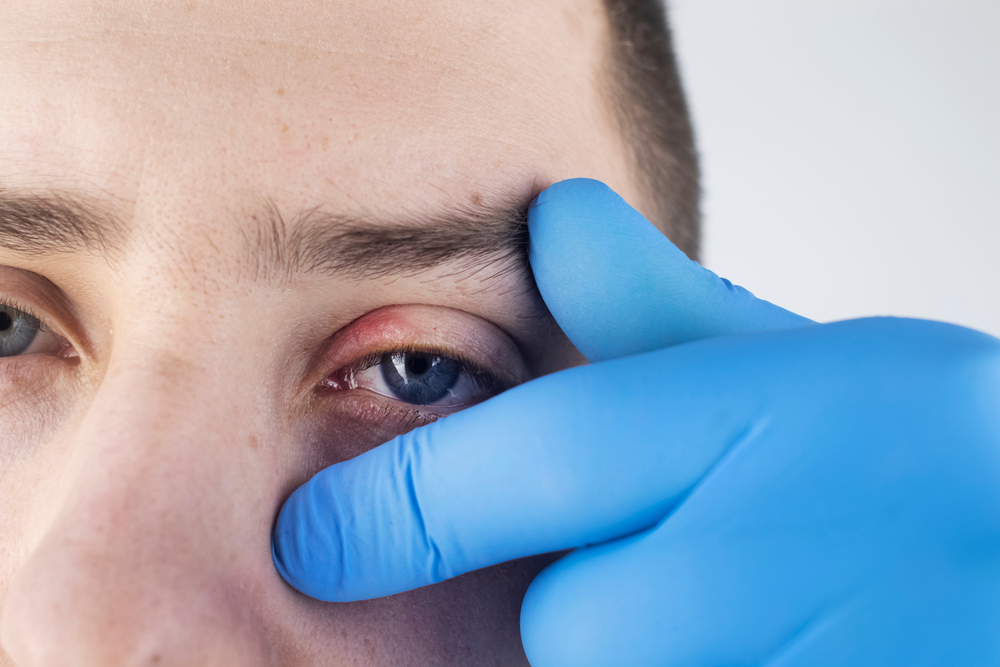
Conclusion
A swollen eyelid can be more than just a cosmetic concern; it’s a sign from your body that something’s amiss. Whether it’s an allergic reaction, infection, or something more, understanding the cause is the first step toward finding relief. With the right approach, most cases of swollen eyelids can be effectively managed or even prevented. If you’re unsure about the cause or the swelling persists, consulting a healthcare professional is the best course of action.
Keeping your eyelids healthy is part of maintaining overall eye health and well-being. By paying attention to the signs your body sends you and taking proactive steps, you can ensure that your eyes remain bright, clear, and free from discomfort. For more details, chat with us at +91-9152065206 or email [email protected].
